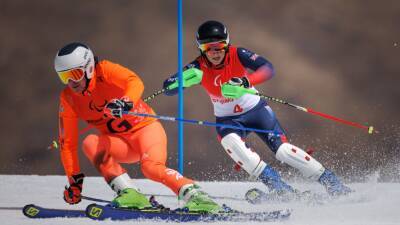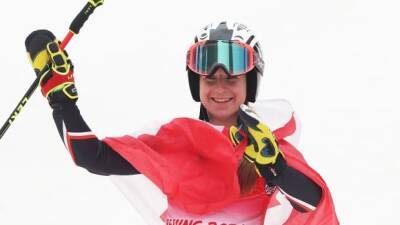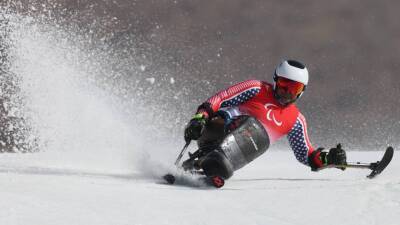Paralympic officials didn’t want these snowboarders to compete. They finished on the podium anyway
After the legal fight France’s Cecile Hernandez and Team USA’s Brenna Huckaby endured to reach Beijing, the turns, berms, and jumps ended up being the easy part. In the women’s snowboard cross final (LL2 classification) on Monday at the 2022 Winter Paralympics, Hernandez and Huckaby claimed gold and bronze, respectively. Canada’s Lisa DeJong won the silver.
As in nearly every Paralympic sport, para snowboarders are classified by disability. The goal behind classification is to ensure that it is an athlete’s competitive ability – rather than their degree of disability – that determines whether they win a medal.
Huckaby, who lost her right leg to bone cancer in 2010, and Hernandez, who has multiple sclerosis, are both classified in the LL1 category. Four years ago at the 2018 PyeongChang Paralympics, they finished on the podium in both women’s LL1 snowboarding events (banked slalom and snowboardcross).
But in 2019, the International Paralympic Committee (IPC) nixed two of the women’s classifications (including LL1) from the Beijing program, citing the depth of the competitive field. As a result, women have just two snowboarding events in Beijing, while men have six.
Because LL1 is for athletes with a more significant impairment than those in LL2, Huckaby requested to “compete up” – either with the LL2 women or LL1 men. The argument was that her disability put her at a disadvantage compared to the LL2 women, meaning she wouldn’t have an unfair advantage over the rest of the field.
“I would rather compete at a disadvantage than not compete at all,” Huckaby explains.
A variety of Paralympic sports allow “competing up.” In track and field, for example, it is common for events to include multiple classifications.
But in








